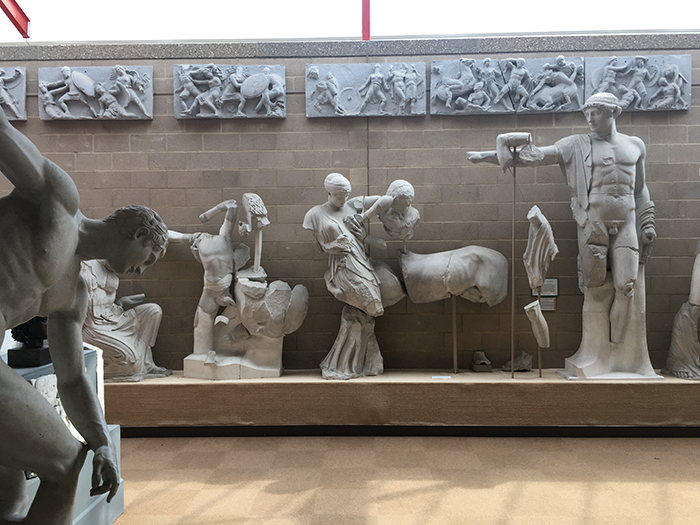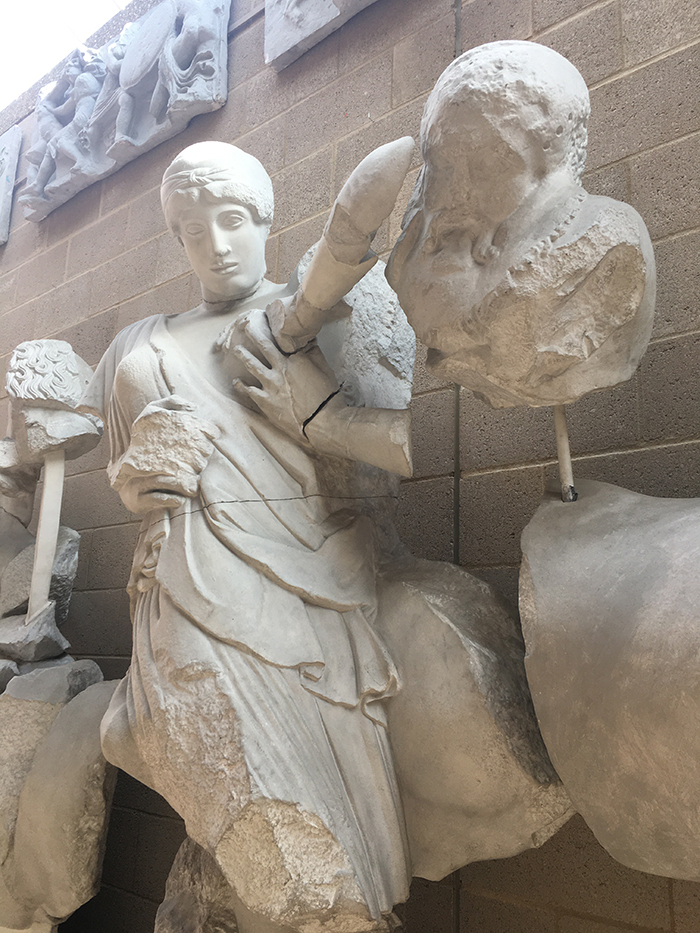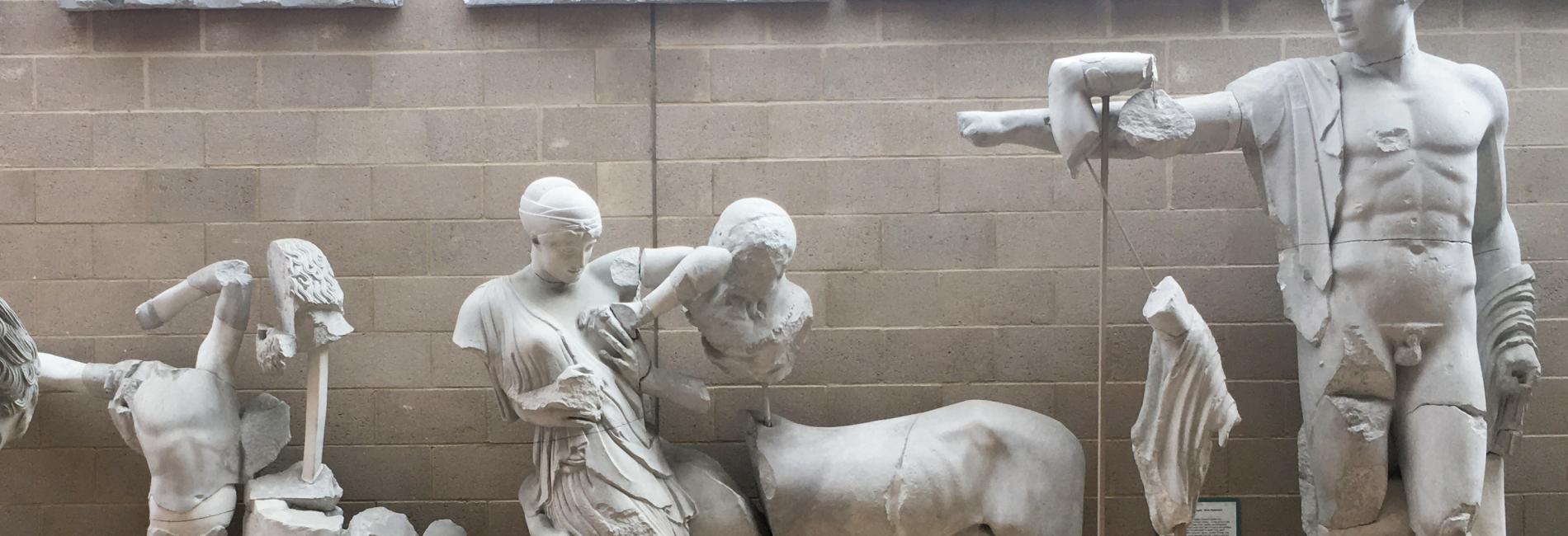A battle is taking place between humans and centaurs: a wedding party gone disastrously wrong.
A woman fights off a centaur - a creature that is half-man, half-horse - with a well-placed elbow. This monumental sculpture decorated the temple of the king of the ancient Greek gods, Zeus, at Olympia. It's been well-studied, in other words. But no one studies it from the woman's perspective.
Justyna Ladosz, Education and Outreach Coordinator at the Museum of Classical Archaeology, tells us more.
Please note: This video contains a discussion of a scene that some scholars have interpreted as a sexual assault.
More information
The sculptures
View of the sculptures, with the woman and centaur in the centre, and the god Apollo to their right.

Close up on the woman elbowing the centaur

Gallery label
Below is the text for the current gallery label for the sculptural group.
"The Temple of Zeus at Olympia: West Pediment
Sculpture from the gable end of the temple
The temple of Zeus, built in the second quarter of the fifth century BCE, was the largest temple in the sanctuary of Zeus at Olympia, where the Olympic Games were held. The sculpture in the pediments show racing and wrestling, but in mythological contexts.
Here the subject is a battle between Lapiths and Centaurs, mythical tribes of northern Greece. It took place at the wedding feast of Peirithoos, king of the Lapiths, and Deidameia. The Centaurs, half horse half man, had been invited to the wedding but drank too much wine and attempt to abduct the Lapith women. In the fight which followed, Apollo, symbol of order and decency, stands at the centre ensuring that the civilised spirit will triumph. Peirithoos, with the divine assistance of Theseus, leads the attack on the Centaurs. Lapith women watch anxiously from the corners of the pediment.
The sculptures contrast with the much more peaceful scene shown in the pediment on the other side of the temple, which here is on the facing wall.
Length: 24m, Olympia Museum. [1884]"



